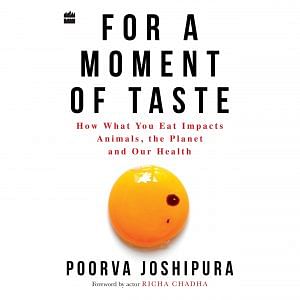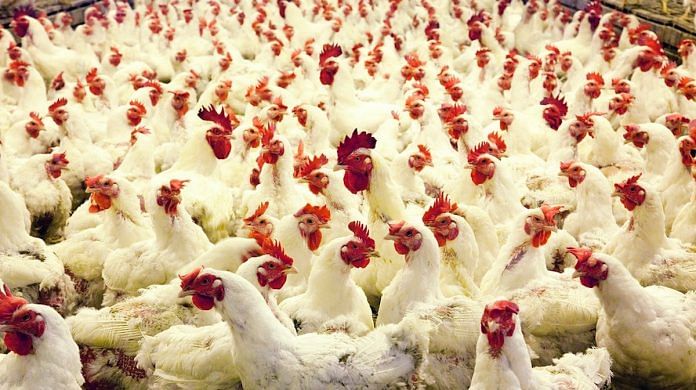When I ate meat, if someone were to have asked me if I loved animals, I would have said an enthusiastic ‘yes!’ After all, I adored playing with dogs and cats I would come across, enjoyed feeding squirrels and birds with my grandmother and liked watching wildlife documentaries with my father.
However, eating animals requires someone ripping them from their families and butchering them—this is something everyone knows, even if they do not know the details of how it is done, and I knew that much too. Yet, I ate meat anyway. What allowed me to do so? What might allow others to do the same?
The Brazilian Supermarket Prank
Scientists have been studying this conflict, between caring for animals and killing them to eat them. This phenomenon has been labelled ‘the meat paradox’ by University of Kent and Université Libre de Bruxelles researchers Steve Loughnan, Boyka Bratanova, and Elisa Puvia.
And we generally do care for animals. That’s why countries have laws protecting animals, why societies for the prevention of cruelty to animals (SPCAs) and other animal protection groups exist, why there was such national outrage when tigress Avni was killed, why the global horror when Cecil the lion and later his son Xanda were killed by trophy hunters in Zimbabwe, and it is likely why you are reading this book. In fact, many of us find what has to happen to animals to produce meat wrong, at least in principle, what little we may know about it, even if we eat meat.
A prank that was set up at a supermarket in Brazil, in which a man pretending to be a butcher offered samples of free fresh pork sausages to the store’s customers, proves this point. Shoppers would visit the counter, eat and admire the pork. Then, the butcher would offer to make more, but to do so he would bring out a live piglet and put the animal in a machine that appeared to instantly grind her up and turn her into fresh meat. In reality, another prankster was sitting in the machine safely collecting each baby pig. Although customers had just readily eaten pork, they were aghast when they thought a live pig was about to be killed. One woman spat out pork from her mouth, others pleaded with the butcher not to kill the young pig and even tried to physically stop him from doing so. None of them picked up another piece of the free fresh pork that they had eagerly eaten before seeing the live pig. If you were one of the customers, what would you have done?
Also read: How coronavirus, bird flu and rumours to stay off non-veg hit poultry industry hard in India
Ranking Species on Worthiness of Moral Concern
While many of us are perturbed by the thought of slaughter of any animal, several studies found people who choose to eat animals are inclined to reject the thought that animals are capable of complex emotions and are likely to draw a further line between the emotional capacities of animals usually used for food (such as chickens) versus those who are not typically eaten by humans (like parrots). Both are birds, but the findings of these scientists indicate that people who eat meat are prone to believe parrots can feel more deeply than chickens, even though there’s no scientific support for such a view. Refusing to acknowledge animals, especially animals used for food, have the ability to experience deep emotions, appears to let many of us dismiss what happens to them in the production of food.
Through studies conducted by Loughnan and his colleague Brock Bastian of the University of Queensland, the pair describes how vegetarians tend to compare with meat eaters in thinking about the mental faculties of animals when told they will be killed. Vegetarians did not alter their view of that animal’s acumen when told an animal, such as a lamb, was set for slaughter. When meat eaters were told the same thing, it was found that they generally reduced their view of the animal’s mental abilities. This, the researchers surmise, may be a ‘defensive way’ to allow us to consume animals without much guilt or remorse.
Another experiment shows merely categorizing an animal as ‘food’ effects how most people perceive the animal’s rights. In this study, researchers introduced a tree kangaroo to participants—an animal the participating individuals were not familiar with. They were given general information about tree kangaroos and then some were told that the animals were for eating while others were not. Those individuals who were told the species was food considerably regarded tree kangaroos as less deserving of concern than the other participants.
Labelling an animal ‘friend’ has an effect too, but an opposite one—doing so tends to increase our respect for the friend species. This labelling of animals as ‘friend’ versus ‘food’ and the psychological effect it has on how we then view them is surely what helped me, when I consider it in hindsight, to simultaneously love animals like dogs and cats and eat animals like cows, chickens and pigs.
Also read: A Dutch butcher is winning hearts by making plants taste just like meat
If this is the effect one study had on people’s minds, imagine the result of being told repeatedly, like we usually are from a young age, that certain animals are for ‘food’ by authority figures, like our parents, or members of our community or people we want to be accepted by, like our friends. What if these individuals would have instead categorized those same animals as ‘friend’? Would we have thought differently?
Today there are many vegetarians and vegans in the United States, but in the ’80s and early ’90s, the repeated messaging to me as a youngster from most people was speciesist: Animals like cows, sheep, pigs, chickens and fish merely existed to be eaten and animals like dogs and cats are friends. In other words, particular species are worthier of respect than other animals just by way of being. Indeed, though I happily ate what I considered to be the ‘food’ members of the animal kingdom, I would have eaten my own foot before I ate a dog. If we are raised in a meat-eating family, or if our families engage in rituals or customs that involve killing or eating certain animals, something similar is usually the repeated messaging we hear too.
 This excerpt from A Moment of Taste by Poorva Joshipura has been published with permission from HarperCollins India.
This excerpt from A Moment of Taste by Poorva Joshipura has been published with permission from HarperCollins India.




This site is a trash !!
Everyone knows that
This site is a trash !!
Everyone knows that
This site is a trash !!
Everyone knows
If you are non vegetarian and feel guilt about slaughtering animals to prepare the food, then you will be better off being vegetarian, its just my opinion. Hope the days are not very far to see the lab grown meat on the dinner table which is produced in environmentally sustainable way.